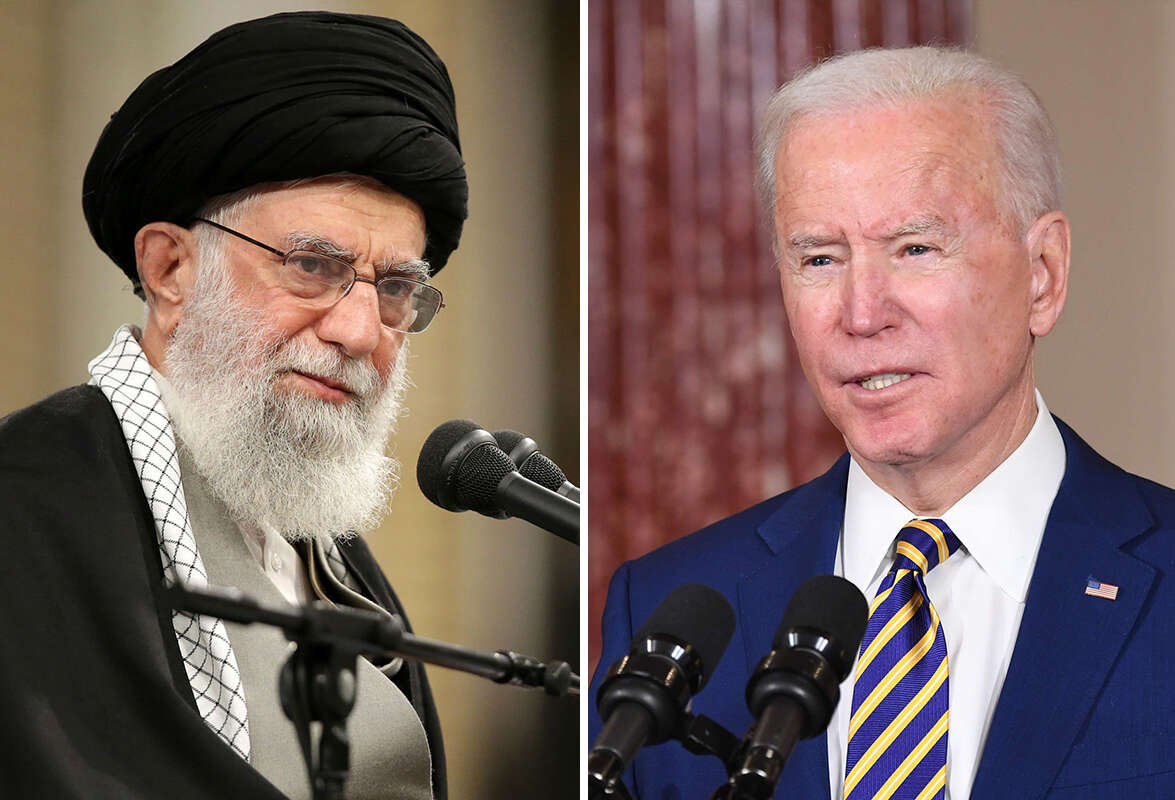
Iran’s Array of Threats
(Israel) on 5 November 2023
by Yehuda Balanga (link to original)
On Oct. 27, the Bloomberg news agency interviewed Iranian Foreign Minister Hossein Amir-Abdollahian, who attacked Israel and said that if it continued to carry out war crimes and attack Palestinians, the “opening of other fronts would be inevitable and that would place Israel in a new situation causing it to regret its actions.” He also stressed that “if the United States continues to do what it has done until now [i.e., unilateral support for Israel], then new fronts will be opened against the United States.”
Since the 1979 revolution, Iran has worked to expand its threats against Israel and the United States. Accordingly, the Islamic Republic has strengthened its relations with terrorist organizations operating in the Middle Eastern and has built a “resistance camp”: a military-political alliance led by Iran, including Syria, Hezbollah (in Lebanon and Iraq), the Houthis in Yemen, Hamas, Palestinian Islamic Jihad, and other Shiite militias in East Asia. Among all of them, Hezbollah is the most important. Hezbollah is “the front of the Islamic world’s struggle against the Zionist enemy,” Iranian leader Ali Khamenei said in July 2000.
In fact, regarding the close relationship between the Shiite terrorist organization and Tehran, one can learn frrom Hassan Nasrallah’s March 12, 2018 statements in which he pledged loyalty to Iran’s Islamic cleric, Ayatollah Khamenei, over loyalty to the Lebanese constitution. Nasrallah also stated that this is not only spiritual loyalty, but also military loyalty, with Hezbollah obligated to follow the instructions and proposals of the supreme leader. Therefore, Yahya Rahim Safavi, the former commander of the Islamic Revolutionary Guard Corps and today Khamenei’s senior military advisor, allowed that “Hassan Nasrallah sees himself as a soldier of Iran’s leader.”
That being the case, as the Israeli ground incursion into Gaza increases, so do the voices crying humanitarian disaster in the strip, and Iran inflames additional combat arenas against Israel and the United States to put pressure on them. Iran does not send all its proxies into battle at one time, definitely not Hezbollah, but employs its assets according to how it views their level of importance (from low to high) and in varying sequences. We can use these indications to identify the number of events that have taken place since Oct. 7, including: transferring almost 100 IRGC fighters to southern Syria along the border with Israel; attacks on three American bases in Iraq and eastern Syria by pro-Iranian militias; firing missiles and launching unmanned aerial vehicles by the Houthis in Yemen; firing toward Israel from Daraa and Kuneitra in Syria; and, of course, repeated attacks against Israel by Hezbollah and other organizations from Lebanese territory.
In the meantime, there is another front Iran intends to use — the social media front in Europe and the United States. In the Bloomberg interview, Abdollahian stressed that “In the streets of the United States and Europe ... people are demonstrating, condemning Israel’s war crimes against the residents of Gaza. The emotions of these people have reached the breaking point and, therefore, everything is possible and every front can be opened.”* In fact, the Iranian foreign minister sounded the threat of an uprising of Muslims who support the Palestinians, intimating that Iran has a hand in the matter.
On the other side, the Americans are watching pro-Iranian elements arrayed in the Middle East with high preparedness. However, the last thing President Biden wants is a multi-front war. . And who, if not Iran, a country that knows this, is focusing on a cease-fire by pressuring the United States and Europe against Israel. American support, said Abdollahian, “will cause an escalation ... the Israeli conflict with Hamas will spread to a much wider regional war ... the American side should decide — does it really want to escalate, intensify the war.” In Tehran’s eyes, the ball is in Washington’s court and it must decide what it wants to do, to allow Israel to defeat Hamas and risk escalation, or to stop. In any case, the Iranian foreign minister pointed out: “We’re not just watching developments. In accordance to our national interests, the Islamic Republic of Iran will take action.”
*Editor’s Note: This quote, accurately translated, could not be independently verified.


